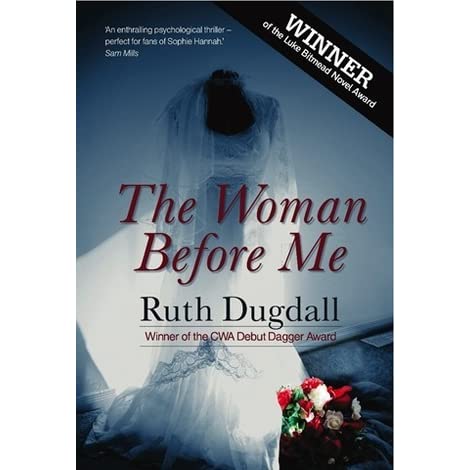
‘Dark, disturbing and authentic.’
This was the CWA judging panel’s judgement and I completely agree with this description (whilst noting that I don’t know enough about prisons to comment accurately on the third, but the officers’ attitudes feel plausible).
So why did ‘The Woman Before Me’ win the CWA’s debut dagger?
What’s it about?
Rose Wilks has spent the past four years in prison, convicted of manslaughter after the death of Emma Hatcher’s son, Luke.
Emma had a loving husband and a healthy child, while Rose’s own son, Joel, was born sickly and premature. When tragedy strikes, Rose is blamed.
Now Rose has requested parole and new parole officer Cate Austin must assess whether or not Rose is sufficiently penitent and therefore safe to be released, but Rose refuses to lie and has always insisted that Luke’s death wasn’t her fault. Without accepting her responsibility, Rose cannot be considered truly penitent and cannot be released on licence.
It’s up to Cate to consider how to best serve the interests of justice, but what does it mean if Rose is telling the truth?
What’s it like?
Sad. Thought-provoking. Dark.
Rose is not a likeable character – her behaviour is too shocking for that – but it’s impossible not to pity her to some extent as she shares her account of her childhood. Trauma begets trauma and the impact of Rose’s childhood relationships on her adult relationships is fascinating and disturbing. In fact, none of the adults in Rose’s story are particularly likeable, but they are very convincing as people determined to have what they want, even when it does them harm.
Dugdall creates a wonderfully destabilising sense of menace around Rose. While we are reading her black book entries, which begin by describing a sad childhood and a frustrating relationship with a man who does not love her, we witness Rose’s manipulation of an impressionable cell mate in the present – as well as her own vulnerability to the less reformed prison staff – and wonder exactly what she is plotting when she’s released.
Is Rose victim or villain? Vulnerable and damaged or calculating and dangerous? It’s a real strength of Dugdall’s writing that we are forced to accept Rose’s flaws and the strength of her love. People are not simple and Rose’s complexities trouble Cate, whose report will have considerable sway over the parole board.
Perhaps the key question that stayed with me after reading this came from Rose herself:
‘Is it true? Was I sick? Am I cured? And if I’m cured, how has that happened? From being caged like Rita’s poor budgie for almost four years, with no treatment, no therapy except 15 minutes with the psychologist when I arrived at each new prison.’
How indeed.
Final thoughts
This is the first book in a series following probation officer Cate Austin. While she is definitely less important here than Rose Wilks, that’s how I like my crime stories. In fact, I would have been happy to see even less of her personal life, particularly the drunken party and subsequent assault, which added nothing to the main storyline, though they did feed into broader issues about prison life and staffing.
It’s possible to guess one of the key outcomes very early on in the book, but the real interest here lies in the examination of Rose’s character and her own stated rationale for her behaviour.
‘The Woman Before Me’ is an interesting and genuinely disturbing read with a surprising but perfectly fitting final twist at the end. I’ll definitely by reading more by Ruth Dugdall.